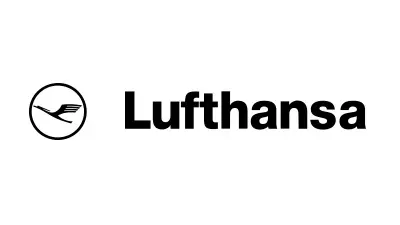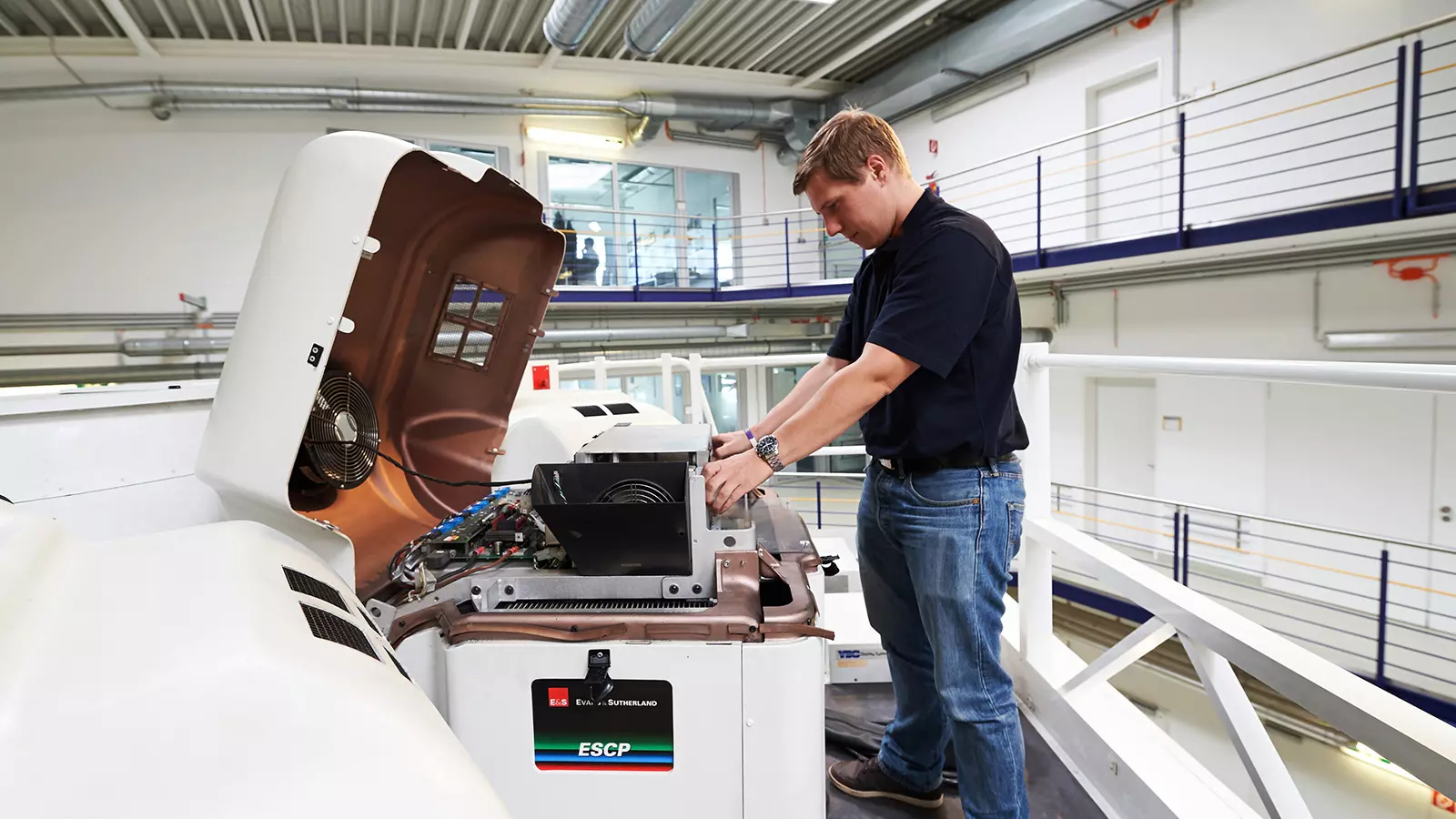Lufthansa aviation training soars with blended learning

Taking off safely with LMS and
blended learning

Lufthansa Aviation Training (LAT) is a wholly-owned subsidiary of Lufthansa AG, providing training and development for flying personnel in a global market since 1997. In addition to the flight operations of the Lufthansa Group, more than 200 other airlines also have their crews trained by LAT.
The product portfolio includes basic training of pilots and flight attendants, flight simulator training, emergency and service training.
Strict guidelines and highly flexible
training content
Highest quality standards for pilots and flight attendants: That is the mission of Lufthansa Aviation Training (LAT). To achieve this goal, the company utilises proven didactic concepts, experience and state-of-the-art learning technologies. The wholly-owned subsidiary of the Lufthansa Group is among the pioneers in the use of e-learning in training and development. Even in the 1990s, the company employed multimedia web-based and computer-based training courses, transitioning from face-to-face events to an online format.
However, this was still not enough to achieve swift implementation of the different airline’s diverging requirements. Moreover, guidelines and instructions from the Federal Aviation Office (LBA) must be strictly observed, often requiring inclusion in the curriculum.
“LAT’s training business is very volatile. When one of our clients buys new aircraft, defines new learning content or needs more flight attendants, we must be able to respond quickly,” says E-Learning Team Leader Udo Link at LAT. The solutions the company had in place were no longer sufficient. A consistent, modern and professional development platform had to be implemented that would instantly be ready for action.

Learning management system in the cloud
In the summer of 2010, LAT decided to implement a learning management system (LMS). Choosing imc as their supplier was an easy decision: At the headquarters of the Lufthansa Group, the imc Learning Suite was already a great success.
LAT decided on the cloud-based version of the multiple award-winning imc Learning Suite, the learning management system by imc. Together with Microsoft, imc is offering an instantly available and easily scalable LMS solution as Software as a Service. It allows LAT to always respond flexibly to changes in real time, both in relation to the number of trainees and the learning content. The LMS also facilitates smooth and intelligent dovetailing of online training and pure face-to-face training.
For instance, future flight attendants must complete a 2-day online training course before arriving for their first face-to-face training. With this approach, LAT ensures that all participants are sufficiently prepared and have the same level of knowledge. The Learning Suite facilitates the implementation of a uniform and consistent blended learning approach while significantly reducing administration costs.

Flexibility and furthering motivated learners
Following a test phase, the entire curriculum for flight attendant training was transitioned to the blended learning concept with the Learning Suite. LAT primarily utilised LMS-based e-learning to provide trainee flight attendants with straightforward access to learning content at any time and from anywhere.
Being able to implement changes and adaptations swiftly also played a key role for the Lufthansa training centre. LAT leverages the full spectrum of comprehensive imc learning technology, way beyond the basic functions of the LMS such as provision of multimedia learning content, participant administration and tutor support.
LAT firmly believes that highly motivated learners achieve better results and promotes this. For example, trainees can use mediated chats to speak to a tutor in the chatroom. A self test is scheduled at the end of any major learning unit, allowing each participant to assess their own performance. LAT uses mandatory tests for the Federal Aviation Office’s (LBA) learning content that requires documentation. A certificate is issued to prove a participant has passed such a test.

